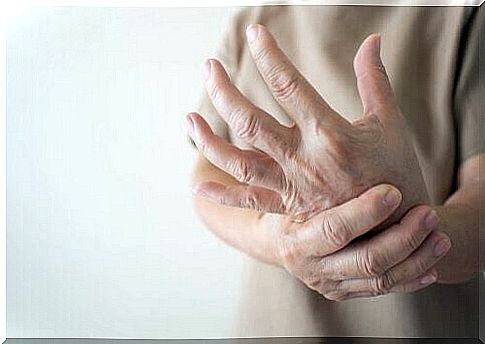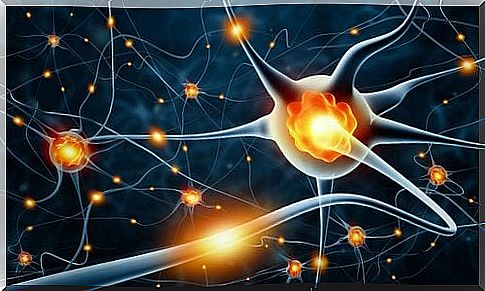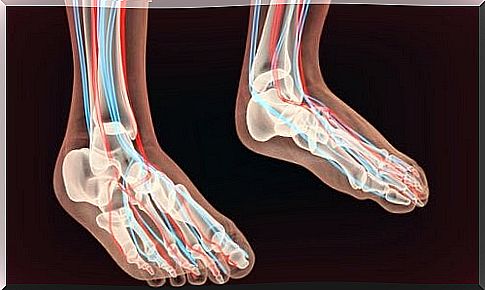What Is Peripheral Neuropathy?

The peripheral nervous system (PNS) is the network of nerves outside the central nervous system (made up of the brain and the spinal cord). Its job is to transmit signals over physical sensations, from the periphery to the brain.
When these nerves are malfunctioning, whether because they are damaged or destroyed, we have peripheral neuropathy.
The peripheral nervous system includes different types of nerves that have a specific function. Here are a few :
- Sensory nerves. They are responsible for transmitting sensations, such as pain and touch.
- Motor nerves. They are responsible for controlling the muscles.
- The autonomic nerves. They take care of regulating automatic functions of the body, such as blood pressure and bladder function.
Peripheral neuropathy can affect a single group of nerves or affect all three at the same time. In any case, when peripheral neuropathy occurs, the normal functioning of the nerves is interrupted. Thus, the latter can send pain signals when nothing is causing it or, conversely, not send a pain signal when something is hurting us.
This nervous phenomenon may be due to injury, systemic disease, infection, or an inherited disorder. Let’s dig deeper into this topic.

Symptoms of peripheral neuropathy
Symptoms of peripheral neuropathy vary depending on the type of neuropathy.
Sensory neuropathy
Sensory neuropathy can cause the following symptoms:
- Tingling and numbness
- Pinching sensation and hypersensitivity
- Increased pain or inability to feel pain
- Loss of ability to sense temperature changes
- Loss of coordination and proprioception
- Throbbing pains that may get worse at night
Sensory neuropathy can also cause ulcers in the feet and legs, infections, and gangrene.
Motor neuropathy
Motor neuropathy affects muscles and has the following symptoms:
- Muscle weakness, which causes instability and difficulty in making small movements
- Loss of muscle mass
- Muscle spasms and cramps
- Muscle paralysis
If the autonomic nerves are affected, there may be vegetative problems related to sweating, heat tolerance, bowel function or bladder, in addition to changes in blood pressure that can cause dizziness.
In both cases, be aware that these symptoms can be a sign of other illnesses. It is therefore important to report all symptoms to the doctor in case of consultation.
Causes of peripheral neuropathy
Many types of neuropathy are idiopathic (of unknown cause). However, there are several phenomena that can trigger them. Thus, diabetes is the most common cause of chronic peripheral neuropathy, as high blood sugar levels damage the nerves.
The other causes can be:
- Chronic kidney disease: if the kidneys are not functioning normally, the imbalance of salts and chemicals can cause peripheral neuropathy
- Musculoskeletal injuries: Broken bones and casts that are too tight can put direct pressure on nerves and damage them
- Infections: Herpes zoster, HIV, Lyme disease or others can affect the nerves
- Guillain-Barré syndrome: this is a specific type of peripheral neuropathy triggered by a viral infection
- Certain autoimmune disorders: this is particularly the case with rheumatoid arthritis and systemic lupus erythematosus

Other causes that can give rise to peripheral neuropathy are:
- Excessive alcohol consumption
- Certain medicines (such as those used for chemotherapy and treatment for HIV)
- Vitamin deficiency (such as vitamin B12, B1, B6 and E)
- Ingestion of poisons or toxic products, such as insecticides or nail polish remover
- Certain types of cancer (this includes lymphoma and multiple myeloma)
- Chronic liver disease
In addition, disorders of small blood vessels can reduce the amount of blood in the nerves, which causes damage to the nerve tissue. Neuromas (benign tumors that affect nervous tissue) can also cause neuropathic pain.
Treatment of peripheral neuropathy
Treatment for peripheral neuropathy depends on the symptoms and the underlying cause. But only a few causes are treatable. For example, in the case of diabetes, the symptoms of neuropathy can be improved by maintaining good blood sugar control, quitting smoking, and reducing alcohol consumption.
Nerve pain can be treated with medicines, called “neuropathic pain agents”. Standard pain relievers are often ineffective.
Other symptoms associated with peripheral neuropathy may require individual treatment. For example, treatment for muscle weakness may involve physiotherapy treatment or assistance with walking.
Transcutaneous Electrical Nerve Stimulation (TENS) is a relief for many people. In this non-invasive, drug-free therapy, electrodes are placed on the patient’s skin to send small amounts of electricity to them. The goal of this treatment is to prevent the nerves from transmitting pain signals to the brain.
In addition, it should be noted that many people have been relieved by the application of other systems, such as chiropractic, acupuncture or massage. Meditation and yoga can also be of great help in relieving symptoms of peripheral neuropathy. Finally, moderate and regular exercise can also help reduce them.
[featured-post url = ”https://nospensees.fr/les-nocicepteurs-les-recepteurs-de-la-douleur/”









